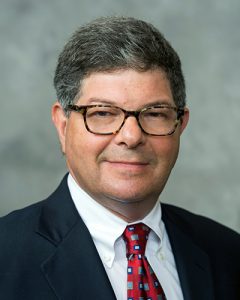
Matthew Shapiro named director of Survey Research Center
September 3, 2019
Matthew D. Shapiro, Lawrence R. Klein Collegiate Professor of Economics, became director of the Survey Research Center on Sept. 1.
The Survey Research Center, part of the Institute for Social Research, is a premier university-based center for survey research in the social sciences.
“The Survey Research Center is the oldest and largest center in ISR and will always be key to ISR’s success. It has a dedicated staff and an extremely talented group of researchers,” said ISR Director David Lam.

Matthew Shapiro
“Shapiro, who comes into the position with a distinguished record in economics and survey research, brings a great set of skills to the position of SRC director.”
Shapiro is a macroeconomist who has researched business cycles, fiscal and monetary policy, consumption and saving, financial decision-making, economics of aging, and economic measurement. His research includes using naturally-occurring data, also known as big data, for studying economic outcomes.
His work using big data includes studying how spending responds to income, using data on checking and credit card accounts. He also studies saving for retirement and long-term care, using survey and financial account data.
Currently, Shapiro leads a project that aims to re-engineer how inflation and gross domestic product statistics are constructed by building them up from item-level retail transactions.
“The Survey Research Center pioneered the use of statistical sampling to provide representative data on social and economic variables and, increasingly, on health,” Shapiro said. “Its long-term longitudinal studies have provided key insights across disparate disciplines and address many social and policy challenges.”
Examples include effectiveness of public policies to reduce poverty, how working longer affects cognitive status, and trends of drug use among school children.
“SRC will be on the forefront of innovations that combine big data with surveys to improve measurement while reducing the burden on survey respondents as well as survey cost, while maintaining SRC’s long-standing diligence in protecting respondents’ privacy and confidentiality,” he said.
Contact:
Morgan Sherburne, [email protected]
Michigan News
